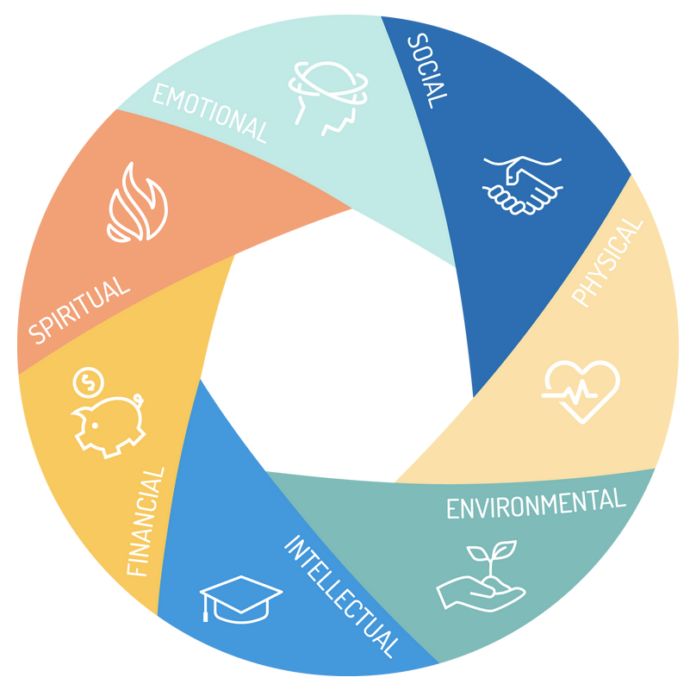“Wellbeing is an active, lifelong process of learning what makes you feel balanced and well in all areas of your life” and it is an evolving state that allows you to achieve your personal goals where you live, learn, work, and play” (Boston University).
There are eight dimensions of well-being:
- Core Needs are “The foundation of an individual’s well-being is having their basic, or core, needs met” such as “food, shelter, and safety” (Boston University).
- Emotional Well-being is “about recognizing, experiencing, and managing a wide range of thoughts and feelings in a constructive way” (Boston University).
- Physical Well-being is “about caring for, respecting, and advocating for your body” (Boston University).
- Environmental Well-being “is valuing the relationship between ourselves, the spaces we live in and work in, and the planet” (Boston University).
- Social Well-being “is building and maintaining healthy relationships and having meaningful, authentic interactions with others” (Boston University).
- Intellectual Well-being “is having a sense of curiosity for what you’re learning, thinking critically and creatively, and being open to new ideas; it’s being a lifelong learner” (Boston University).
- Financial Well-being “is learning how to manage your money and resources responsibly with an eye towards long-term financial security” (Boston University).
- Spiritual Well-being “is about exploring beliefs, principles, and values that give meaning and purpose to your life” (Boston University).
These dimensions of well-being are categorized, but these dimensions also flow into one another and affect each other. Wellbeing comes from the balance and ability to be well in all of these dimensions and how they interact in your life. In this context, it is important to understand that personal finance and well-being is not strictly about financial well-being, but it influences the other dimensions of well-being, and therefore someone’s overall well-being. Because of this, it is important to take all dimensions of well-being into account when trying to design for the financial well-being of an individual.
References:
Boston University. What is Wellbeing? https://www.bu.edu/studentwellbeing/what-is-wellbeing/




